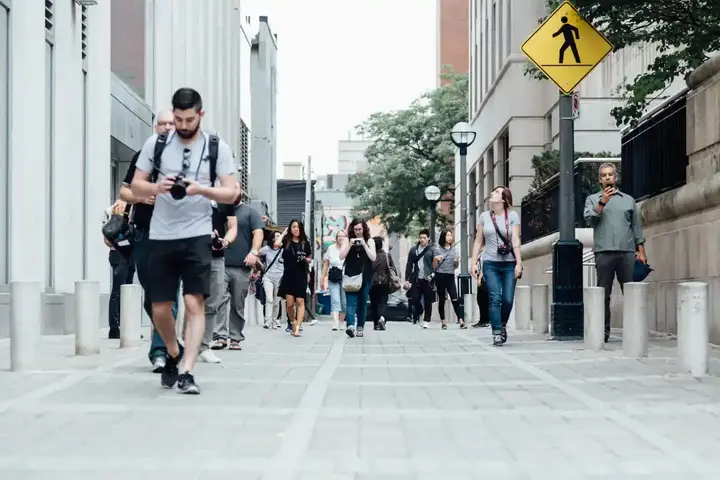Canadians say the word "sorry" so often that an apology law was passed in 2009.

If there's one thing Canadians are known for internationally, it's being polite and apologizing. Is there another country where two people can bump into each other and both say "sorry" even though one of the parties was clearly wrong?
Show key points
- Canadians are globally recognized for their politeness and frequent use of the word "sorry," often regardless of fault.
- To support this cultural trait, all Canadian provinces and territories have enacted apology laws that protect individuals from legal liability when apologizing.
- These apology laws ensure that saying "sorry" cannot be used as evidence of guilt or fault in court proceedings, including professional disciplinary actions.
- ADVERTISEMENT
- A study revealed that Canadians, on average, say "sorry" nine times a day, highlighting how deeply ingrained the behavior is in daily life.
- Despite its ubiquity, nearly a third of Canadians feel that "I'm sorry" alone may not be a sufficient or appropriate apology.
- In many cases, Canadians apologize reflexively, even for minor or unintended actions, such as being bumped into or asking a question.
- Interestingly, Burlington, Ontario, was named Canada’s most apologetic city, yet it also leads in daily use of swearing and insults.
The need not to start a conflict and to express sympathy for the actions of others is so ingrained in Canadians that almost every province — and territory — has gone so far as to enact an apology law. In fact, the protections provided by the apology legislation are pretty much the same from province to province, they are all sorry – but is that on the same footing of equality?
Apology Law: Sorry, this is real.

Canadians generally want to avoid conflict to the point that they automatically say "sorry"... On everything. A study found that the average Canadian says "sorry" about nine times a day.
Recommend
The main objective of the apology legislation is to reduce concern about the legal implications of making an apology. It usually states that an apology:
does not constitute an admission of fault or legal liability;
must not be taken into account in determining fault or liability;
It may not be accepted as evidence of fault or responsibility.
This protection extends to judicial proceedings and court proceedings such as those held by a disciplinary commission of professional bodies.
Is "I'm sorry" an appropriate apology? Canadians ask

Sometimes saying "I'm sorry" doesn't work.
Nearly a third of Canadians say the phrase isn't an appropriate apology, according to new YouGov data that sheds some light on whether or not a way to show remorse is good.
Whether Canadians like it or not, many people around the world hold the stereotype of an apologetic Canadian, someone who rushes to quickly introduce the word "sorry," sometimes instead of "excuse me," "thank you," or "excuse me."
When it really matters, what is the best way to atone for a mistake after it has been made? For some, if you want to make it honest, say so. Four in five (80%) Canadians believe that "I sincerely apologize" is appropriate, followed immediately by "I offer my sincere apologies" (79%).
A simple "I'm sorry" is enough to satisfy 62% of Canadians, but nearly a third (32%) say it isn't.
Canadians apologize for silly things

You can always spot a Canadian when he says "sorry" for things he didn't do, like saying "I'm sorry" when he steps on your foot!
Does this necessarily mean that Canadians apologize when they say "sorry"? Not always. For some, this is a reflex. But more often than not, Canadians are really polite, even when it's not necessary. If you are a real Canadian, you will definitely apologize in the following situations:
1. When someone bumps into you on the street.
2. When you don't keep the door open when you pass by someone who is not directly behind you.
3. When you talk on your mobile phone and someone tries to get your attention.
4. When you ask a question to a stranger.
5. When you literally lend a helping hand to another person.
6. When the inconvenience is so simple, that it hardly calls for a reaction at all.
7. When you try to avoid colliding with someone in a crowded place.
Canada's "most regrettable" city

According to a recent public survey, the most "regrettable" city in Canada is Burlington, Ontario. People there apologize 18 times a day. However, interestingly enough, the study also found that Burlington is the city whose residents use swearing and insults the most – about 15 times a day!








